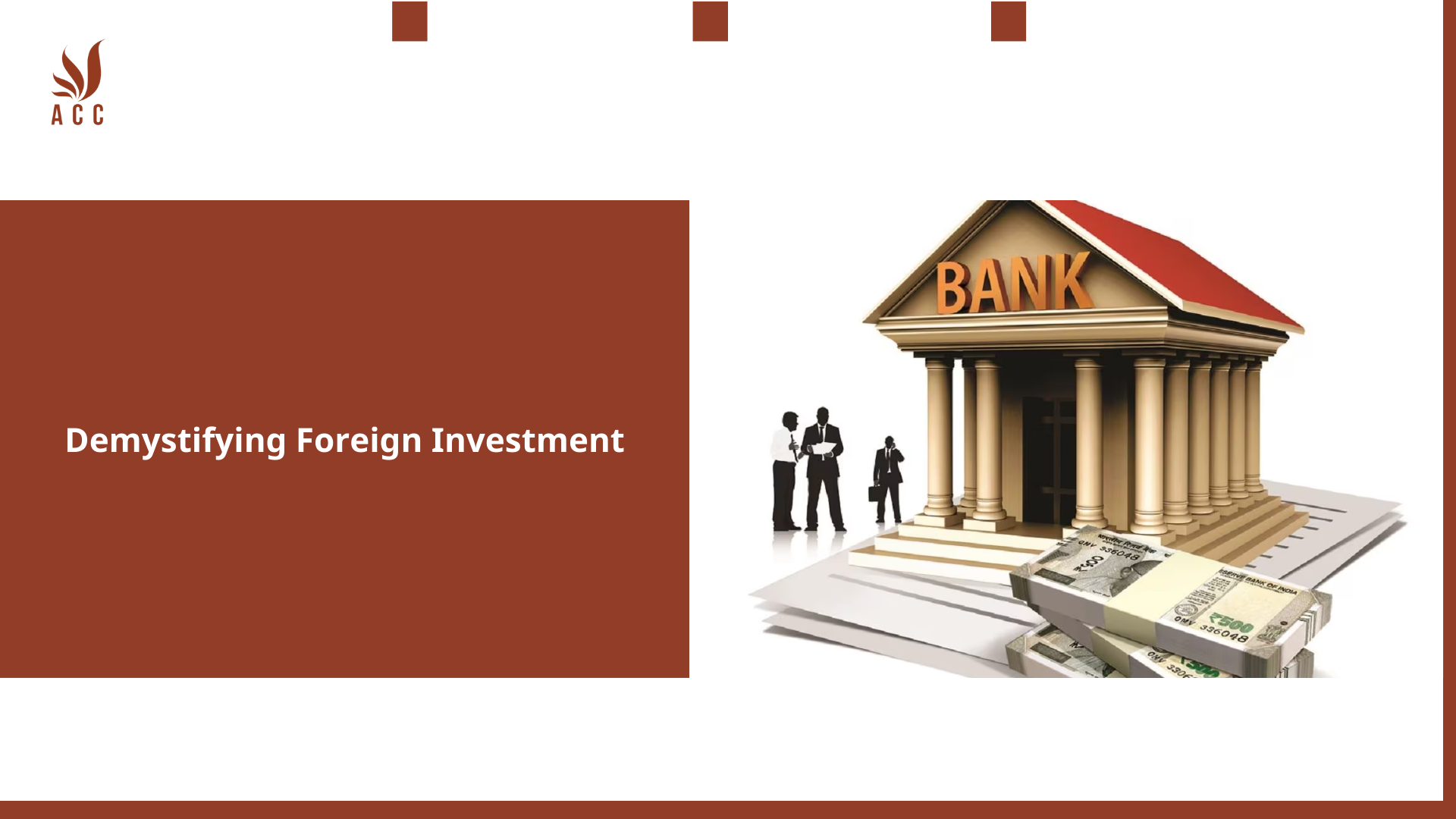
1. Demystifying Foreign Investment
2. What Is Foreign Investment?
3. The Mechanism of Foreign Investment
4. Direct vs. Indirect Foreign Investments
5. Diverse Forms of Foreign Investment
6. Why should professionals use ACC Law Firm's capital Service?
-
Expertise: ACC Law Firm specializes in providing capital-related services, making them experts in this field. They understand the intricacies of capital management, financial regulations, and the legal aspects involved. This expertise can be invaluable for professionals seeking financial solutions.
-
Tailored Solutions: ACC Law Firm can customize capital solutions to meet the specific needs of professionals. Whether it's funding for business expansion, debt restructuring, or investment advice, they can provide personalized recommendations and strategies.
-
Legal Guidance: Legal considerations are often a significant aspect of capital-related decisions. ACC Law Firm can provide legal counsel and ensure that professionals are in compliance with all relevant laws and regulations, reducing the risk of legal issues down the road.
-
Risk Management: Professionals can benefit from ACC Law Firm's risk assessment and mitigation strategies. They can help clients navigate potential financial risks and make informed decisions to safeguard their investments and assets.
-
Efficiency: ACC Law Firm can streamline the capital-raising process, saving professionals time and effort. Their experience in dealing with financial institutions and investors can expedite the funding process.
Q&A
Question 1: What is the definition of foreign investment?
Answer 1: Foreign investment refers to the allocation of capital, resources, or assets by an individual, company, or government of one country into the markets or projects of another country.
Question 2: What are the primary forms of foreign investment?
Answer 2: The main forms of foreign investment include Foreign Direct Investment (FDI) where entities establish a direct presence in another country, and Foreign Portfolio Investment (FPI) which involves the purchase of stocks, bonds, or other securities in foreign markets.
Question 3: What are the potential benefits of foreign investment for both the investing and host countries?
Answer 3: Foreign investment can lead to increased economic growth, job creation, technology transfer, and improved infrastructure in the host country, while providing diversification and market access for the investing country.
Question 4: Can you provide an example of a well-known foreign investment?
Answer 4: One prominent example of foreign investment is when a multinational corporation from one country builds manufacturing facilities in another country to take advantage of lower production costs and access new markets, ultimately contributing to the economic development of both countries.
Nội dung bài viết:






Bình luận